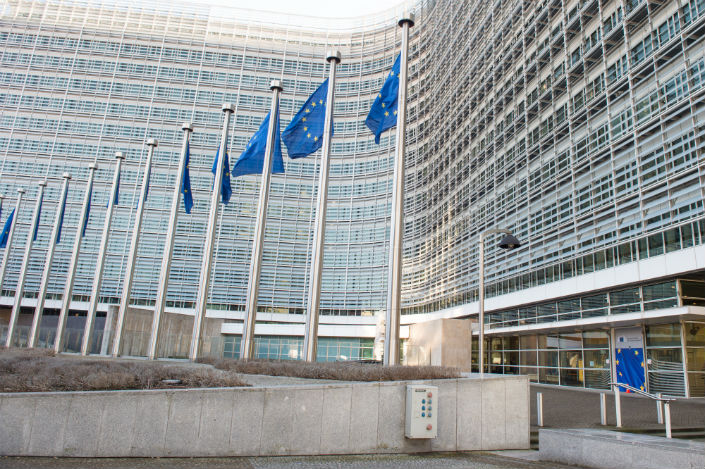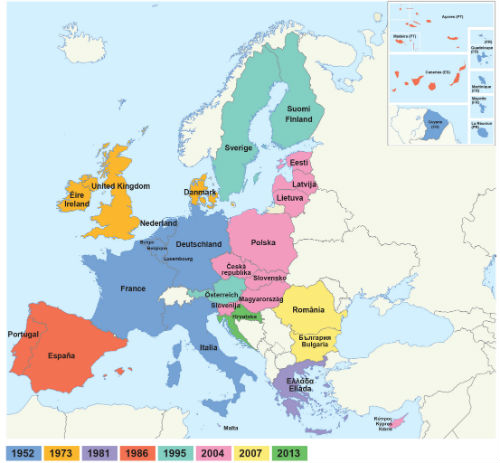"Brexit is the solution"
The decision facing voters in the forthcoming European Union referendum is a 'purely political' one, writes a Baptist minister, explaining there are three key areas why it will be better for the UK to leave

I do not believe that the decision whether or not to remain in the European Union (EU) either carries with it any overriding theological expedient, or that it is to be decided according to any particular moral imperative. For it is a purely political matter and as such any Baptist Christian should make up her/his own mind accordingly, and that Baptist Christians can find themselves on either side of the argument without feeling that the other has been compromised in any way. Hence my view that it would be better for the UK to leave the European Union is entirely political, based on three key points - Sovereignty, Security, Stability. A good Baptist always manages three points, each beginning with the same letter…
Having been born in March 1957, the first vote I ever cast was in the European Economic Community (EEC) Referendum held on 5 June 1975, a referendum called by the then Prime Minister, the late Harold Wilson (who used to attend the church of which I am presently minister, The Free Church, Hampstead Garden Suburb). In that debate I was greatly influenced by Tony Benn, who posed five simple questions concerning the functioning of a democratic society and invited his readers to apply them to the EEC as it was then, the issue of Sovereignty…
-
What power have you got?
-
Where did you get it from?
-
In whose interests do you use it?
-
To whom are you accountable?
-
How do we get rid of you?
While the EU in 2016 is a world away from the EEC of 1975, the essential argument is the same. The Prime Minister contends that recent renegotiations have resulted in a much changed relationship between the UK and its European partners (as Wilson did in 1975), but most commentators seem agreed that any changes are at best marginal improvements, and the actual debate is proceeding as if the renegotiation never took place at all. That is why I believe that the questions asked by Tony Benn in 1975 deserve to be centre stage in 2016.
 Fundamentally it is about democracy versus bureaucracy; how much, if at all, is it acceptable to subordinate the democratic process to one controlled by bureaucrats? (An issue that is equally applicable domestically, e.g. subordinating democratic control over monetary policy to the bureaucratic control of the Bank of England). To my mind, the EU is controlled by an increasingly undemocratic bureaucracy destined more and more to undermine the democratic processes of member states; either by imposing a ‘collective’ political will upon them or else emasculating the ‘individual’ political will of any single member state.
Fundamentally it is about democracy versus bureaucracy; how much, if at all, is it acceptable to subordinate the democratic process to one controlled by bureaucrats? (An issue that is equally applicable domestically, e.g. subordinating democratic control over monetary policy to the bureaucratic control of the Bank of England). To my mind, the EU is controlled by an increasingly undemocratic bureaucracy destined more and more to undermine the democratic processes of member states; either by imposing a ‘collective’ political will upon them or else emasculating the ‘individual’ political will of any single member state.
Of course, successive governments, this present one included, have argued that it is possible to position oneself in such a way as not to be overly affected to one’s detriment; to negotiate what is referred to as a ‘win win’ position in respect of national sovereignty over against so-called pooled sovereignty. Given that the ‘whole is never greater than the sum of the parts’, for one country to achieve ‘win win’, others have to accept ‘lose lose’ and can that ever be good for the stability of the whole.
However, it can be argued that there is one profound difference as far as 2016 is concerned in relation to 1975, the whole area of Security; be it national, regional or global, and that the increasingly insecure nature of the world as a whole demands that we bind ourselves ever closer to our allies, especially when amongst those allies are those who in the past have been our enemies.
In terms of national security, the irony is that the most ‘effective’ tool we have to employ is the refusal to embrace the ‘open borders’ policy of the EU. And of course, the major threat to our national security has been potential acts of terrorism perpetrated from within our borders either by non EU nationals from abroad or UK passport holders already living here. Regional security is at best fragile with little appetite for cross border cooperation, especially across the fault line that is the old ‘west/east’ divide, and at worst illusory as is being proven in regard to the refuge/migrant crisis presently unfolding on its Eastern border. In terms of Global security, it will always be NATO which wields the most influence, whether we like it or not.
Which brings us to Stability. An EEC of 6-9 politically like minded countries was sustainable. But now an EU of 28+ countries is nothing of the sort. Political consensus is proving impossible to achieve. Different economic models, far from becoming harmonised, merely exacerbate tensions from within. The Euro Zone is a palpable failure, and rather than a ‘levelling up’ of opportunities, of wealth creation, and of employment prospects, we have seen a ‘levelling down’ which produces internal dissent and the rise of the ugly face of nationalism…
So, for me BREXIT is the solution, not that the problems will go away but at least we will be able to address them for ourselves. No doubt informal co operation will continue; it has to…trade knows no borders…
P.S. - Is it really right, morally, to opt in to that which benefits us whilst opting out of that which doesn’t; isn’t the only morally right position ‘everything’ or ‘nothing’?
‘Everything’ isn’t on the table…'Nothing’ is…
Pictures (European Commission Audiovisual Service):
Berlaymont building, the EC headquarters
Map of the enlargement to 28 EU member countries
The Revd Dr Ian Tutton is Minister at The Free Church, Hampstead Garden Suburb
Related:
Baptist life and its European context Rather than engage in the economic case for staying in the European Union (EU), Tony Peck invites British Baptists to reflect on some aspects of our Baptist story and identity that might inform our vote in the EU referendum
The EU Referendum - what does it all mean? A Baptist pastor has produced two guides to the EU referendum, one for everyone and one for those who are interested in thinking about this theologically
Baptist Times, 09/03/2016